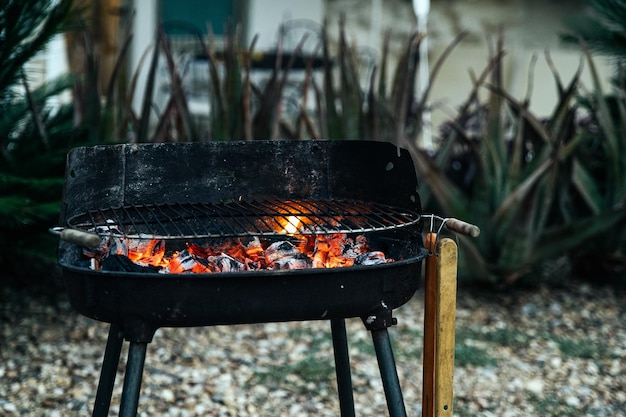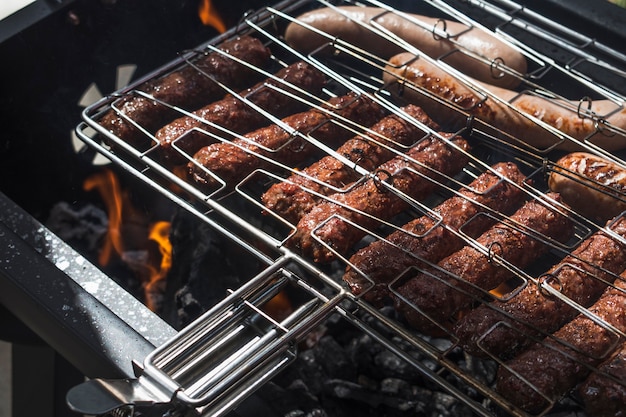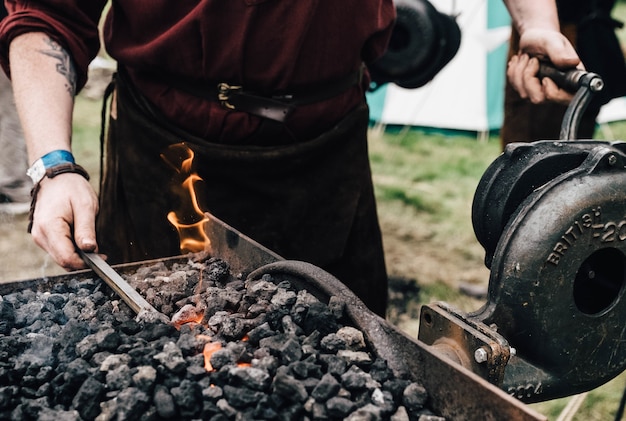Can BBQ Charcoal Make You Sick?
In recent years, the popularity of barbecuing has soared across the United Kingdom. Whether it’s a summer garden party or a weekend gathering with friends and family, firing up the grill has become a cherished tradition. However, as with any cooking method, it’s essential to prioritize food safety. One question that often arises is whether BBQ charcoal can make you sick. In this article, we will explore the potential health risks associated with BBQ charcoal and provide actionable tips to ensure a safe grilling experience.
The Composition of BBQ Charcoal
BBQ charcoal is primarily made from wood, such as hardwood, softwood, or coconut shells. It undergoes a process called pyrolysis, which involves heating organic material in the absence of oxygen to produce a carbon-rich substance. The resulting charcoal is then used as a fuel source for grilling and barbecuing.
Charcoal briquettes, a popular form of BBQ charcoal, often contain additional ingredients such as binders, fillers, and additives to enhance combustion properties and facilitate ignition. These additives can vary between manufacturers, but they are generally considered safe for consumption when used as intended.
Possible Health Risks
When used correctly, there are minimal health risks associated with BBQ charcoal. However, it’s important to be aware of potential hazards and take necessary precautions to mitigate them.
One potential risk is carbon monoxide poisoning. When charcoal burns, it releases carbon monoxide, an odorless and colorless gas that can be harmful when inhaled in high concentrations. To prevent this, it’s crucial to grill in well-ventilated areas, such as outdoors or under an open canopy, to ensure proper airflow and prevent the accumulation of carbon monoxide.
It’s crucial to grill in well-ventilated areas, such as outdoors or under an open canopy, to ensure proper airflow and prevent the accumulation of carbon monoxide.
Another concern is the presence of chemicals from the combustion process. When grilling with BBQ charcoal, compounds such as polycyclic aromatic hydrocarbons (PAHs) and heterocyclic amines (HCAs) can form. These chemicals are known to have carcinogenic properties and can pose a health risk if consumed in excessive amounts over a prolonged period. However, the risk can be minimized through proper grilling techniques.
Safe Grilling Practices
To ensure a safe grilling experience and minimize any potential health risks associated with BBQ charcoal, consider the following guidelines:
- Choose high-quality charcoal: Opt for reputable brands that prioritize quality and safety. Look for charcoal labeled as “all-natural” or “organic” to minimize the presence of additives.
- Preheat the charcoal thoroughly: Allow the charcoal to burn until it is covered with white ash before placing food on the grill. This ensures that any harmful chemicals have burned off.
- Use lean cuts of meat: Fat dripping onto the charcoal can lead to flare-ups and increased production of harmful compounds. Trim excess fat from meat before grilling to minimize this risk.
- Marinate your food: Studies have shown that marinating meat before grilling can help reduce the formation of HCAs. Marinades containing vinegar, citrus juices, or herbs like rosemary have been found to be particularly effective.
- Avoid excessive charring: Charred or burnt portions of grilled food contain higher levels of potentially harmful compounds. Keep an eye on your food and remove it from the grill once it is cooked to your desired level of doneness.
- Clean your grill: Regularly clean your grill to remove any residue or buildup that may contribute to the production of harmful chemicals. Scrub the grates with a grill brush and dispose of old ashes properly.
The Verdict
While BBQ charcoal can pose potential health risks if not used responsibly, following safe grilling practices significantly mitigates these hazards. Carbon monoxide poisoning and the formation of carcinogenic compounds are concerns that can be addressed by choosing the right charcoal, grilling in well-ventilated spaces, and employing proper cooking techniques.
By being mindful of these factors and practicing safe grilling habits, you can enjoy delicious barbecued meals with family and friends without compromising your health. So, fire up the grill, savor those mouth-watering flavors, and keep food safety at the forefront of your BBQ experience.


